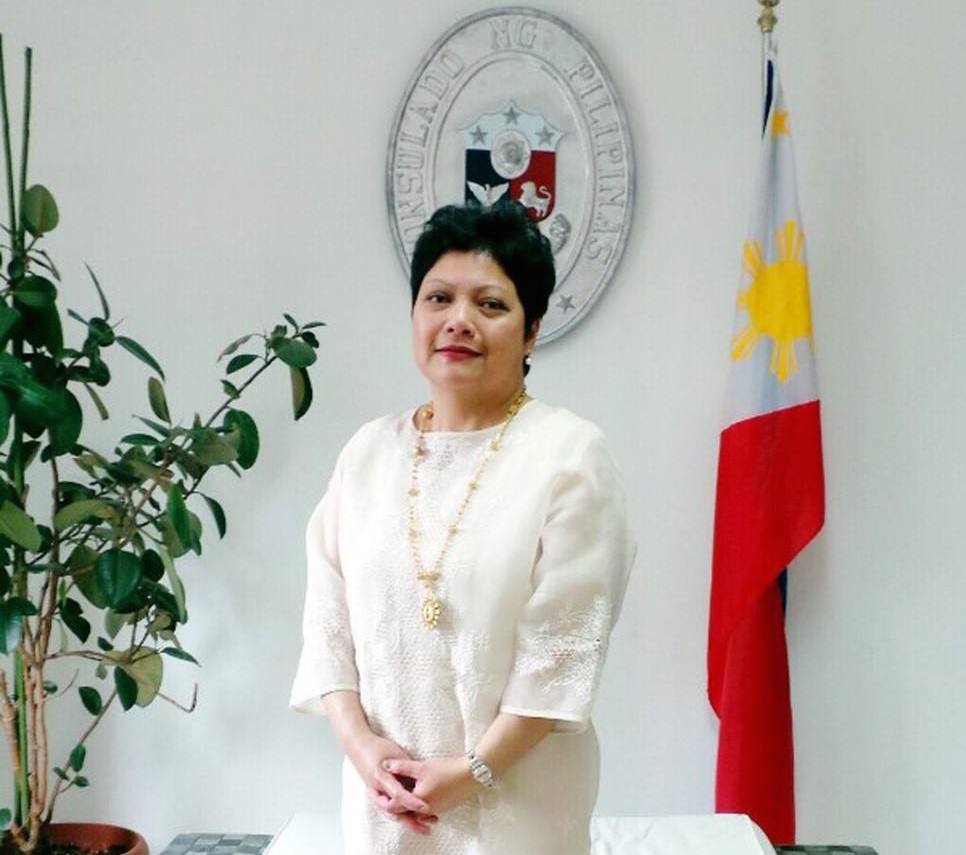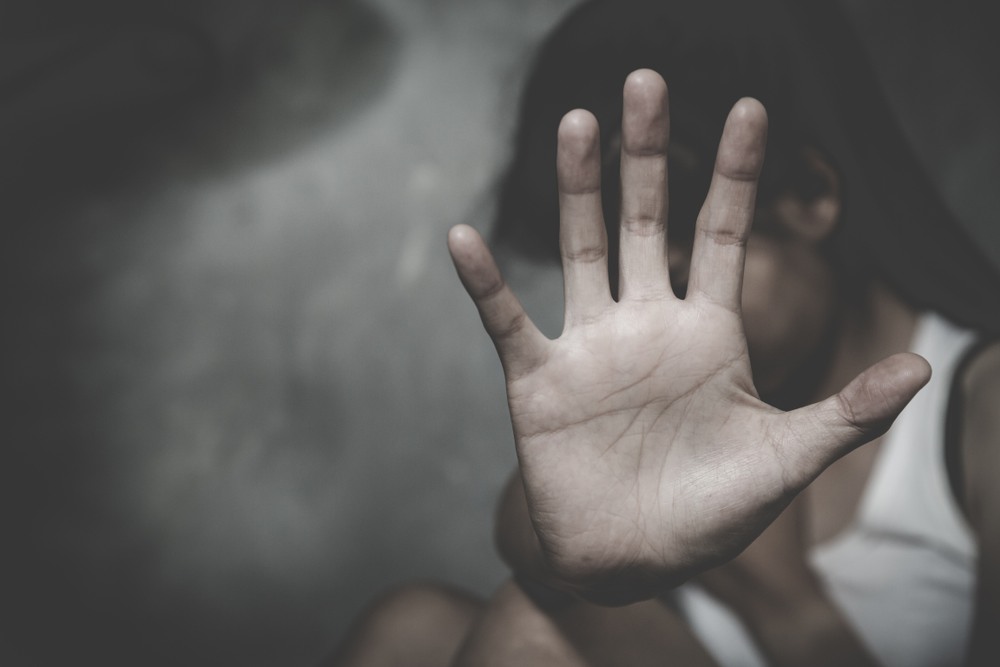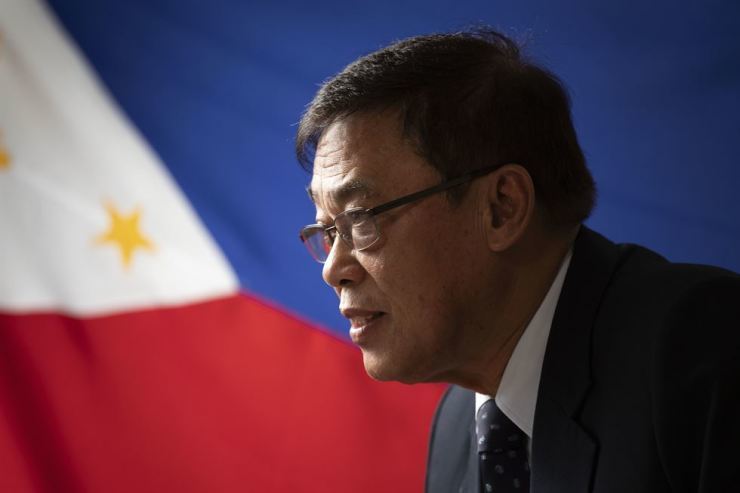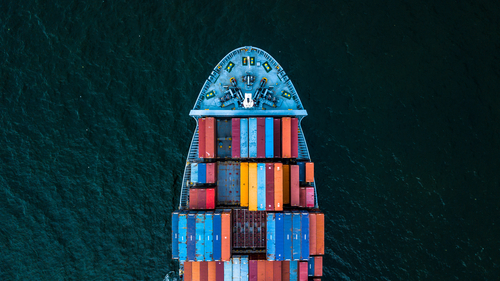Philippine Ambassador’s maltreatment of maid and other diplomatic abuses
Our diplomats represent the country and all of us—whether we like it or not. Unfortunately, some of them represent the worst of the Filipino.
Philippine Ambassador to Brazil Marichu Mauro has been recalled over alleged maltreatment of her domestic help, the Department of Foreign Affairs said on Monday, Oct. 26. Yesterday, President Rodrigo Duterte yesterday approved Foreign Affairs Secretary Teddy Boy Locsin’s request to initiate an investigation into the ambassador’s conduct.
The CCTV video recorded at her residence in capital city Brasilia shows Mauro slapping and pushing her 51-year-old Filipino maid.
It’s hard to watch for two reasons: first is the maltreatment of the helper, and second is that the offender is our country’s ambassador—representing all of us Filipinos, whether we like it or not.
Marichu Mauro’s conduct was not just unbecoming of an ambassador, it was unbecoming of a Filipino.
The video has no sound. One can imagine how even more horrifying it is with the probable verbal abuse that went with the slapping.
You can see from Mauro’s aggressive body language just how little she thinks of her maid; you can see from the maid’s body language how helpless she feels.
In several parts of the video, the helper is seen crouching on the floor in front of sliding doors; she raises her hands clumsily to defend herself Her shoulders hunched, she walks away slowly after she is pushed; other times, she pauses by the corridor as if fearing that Madame Ambassador might be on the other side of the wall, ready to berate her again.

Filipinos always say that our kasambahays are like family to us—especially since many of them leave their own children to become yayas. It appears Mauro doesn’t share this attitude.
I actually met her twice when she was Consul General in Milan. Once in 2015 when she visited Salone del Mobile and I was covering Design Week, and a year later at Biennale Architecture in Venice. She was, as any diplomat out in public, proper.
Mauro’s conduct is not just unbecoming of an ambassador, it’s unbecoming of a Filipino.
(Watch the video here.)
And unfortunately, this is not the first scandal involving our diplomats abroad.
Sex-for-flight scandal, PH embassies in the Middle East, 2013
In June 2013 Akbayan Rep. Walden Belo, chair of the House committee on overseas workers’ affairs, exposed the sex-for-flight scandal involving embassy officials and labor department employees in Saudi Arabia.
“Sexual abuse on our womenfolk perpetrated by their hosts in a foreign country is an awful crime. But there is something more awful, and that is their exploitation by their own compatriots in that strange land,” he said.
First there were four women in Riyadh, then it was revealed that Filipino domestic helpers who sought help at the Philippine embassies in Kuwait, Jordan and Syria after they fled their abusive employers experienced the same abuse (or worse) in the hands of fellow Filipinos.
It was alleged that embassy officials and employees were prostituting women living in OFW shelters and offering them “sex for repatriation.”

They allegedly asked the women for sexual services for themselves or other men in return for payment. Those who desperately wanted to fly back to the country and agreed would be fetched by a driver or embassy staffer at night and taken to “clients.”
Foreign Secretary Albert del Rosario summoned 11 ambassadors back to Manila to explain their side. These were ambassadors posted in Jordan, Kuwait, Syria, Saudi Arabia, Oman, Bahrain, the UAE, Qatar, Oman, Libya, Egypt, and Lebanon.
The DFA also sent a team to investigate the alleged abuses.
In Manila, the four abused women spoke with Del Rosario and other officials in a meeting facilitated by ABS-CBN News.
Gulf News reported on July 31, 2013, “At least 13 labor officials and diplomatic personnel have been implicated in alleged misconduct committed at various Philippine consular posts abroad. Two of the officials are personnel of the DFA while the rest are from the Department of Labor and Employment.”
DFA and DOLE recalled personnel implicated in the scandal, but a year later, GMA News reported that an embassy labor officer in Kuwait was rehired.
In 2013, Philippine officials in the Middle East were accused of prostituting Filipino domestic helpers with a ‘sex-for-flight’ scheme—women who had just escaped abuse from their foreign employers.
Also involved in a scandal was former Labor Attaché in Riyadh Adam A. Musa who was accused of coddling his Filipino driver who sexually harassed a domestic helper. The woman had escaped from her Arab employer who attempted to rape her.
Arab News reported that the victim was molested while she was staying at Bahay Kalinga, a shelter run by the Philippine Overseas Labor Office (POLO), which Musa headed. She settled the case with the driver through Musa’s staff with the money reportedly coming from Musa himself.
Almost a year after the expose and investigation, Bello said the DFA and DOLE ensured “that the officials involved in these abuses (were) not held accountable for their crimes.”
No one was prosecuted for the abuses.
Philippine Ambassador to South Korea accused of molesting a woman, 2020
The South China Morning Post reported on July 21, 2020 that South Korea was seeking to extradite former Philippine Ambassador to South Korea Noe Albano Wong, who allegedly molested a Korean woman in December 2019.
“South Korean police in May issued an Interpol Red Notice to seek Wong’s location with the aim of extraditing him to the country.”
A retired police general, Wong assumed his post in August 2019 and resigned in March 2020 over “health reasons,” and before a warrant for his arrest was issued in Seoul.

DFA on July 21 issued a statement: “The Department is committed to ensuring that justice is rendered in this case. It also remains committed in cultivating and preserving a work environment where all personnel are treated with respect and dignity, and free from harassment of any kind.”
The Korea Times reported, “The embassy (in Seoul) did not clarify whether Wong's health was really the reason for his resignation or whether it was an attempt to cover up the allegations.”
At the request of South Korea’s National Police Agency, Wong was put on the Interpol’s Red Notice list “and asked member states to help find and arrest him.”
The Canadian diplomatic row on garbage, 2019
Whether this was abuse or not is arguable, but it sure as hell was embarrassing for Canada.
The row started in 2013-2014 when 103 containers of Canadian garbage were shipped from Vancover to Manila by a recycling company and labeled “recyclable plastics.” Customs in Manila found instead "household trash, plastic bottles and bags, newspapers, and used adult diapers.”
In 2019, Duterte threatened to ‘set sail to Canada and pour their garbage there.’ To people who remember his promise to ‘jetski to the Spratleys and plant the Philippine flag there,’ that meant nothing. But indeed our ambassador and consuls were recalled.
In 2016, Philippine courts ruled the garbage should be shipped back home but most of the containers remained in Manila and Subic ports through 2019, sparking protests.
By 2018 storing the garbage had cost the Philippine government P36 million.
Canada missed the May 15, 2019 deadline to take back the garbage. President Duterte threatened to “set sail to Canada and pour their garbage there” if it wasn’t removed from the Philippines.
To people who had heard Duterte threaten to “jetski to the Spratleys and plant the Philippine flag there,” that meant nothing.

Nevertheless, the Department of Foreign Affairs recalled its ambassador and consuls in Canada. Secretary Locsin tweeted that until the garbage issue was resolved, the country would “maintain a diminished diplomatic presence in Canada.”
Canada released a statement saying it was disappointed by the recall but would work closely with the Philippines to resolve the issue.
Finally, on May 30, 2019, the remaining 69 containers (others were previously dumped and burned in Capas, Tarlac) were loaded on M/V Banaria in Subic port and began their journey back to Canada.
Even in diplomacy, foreign garbage must be expatriated.


